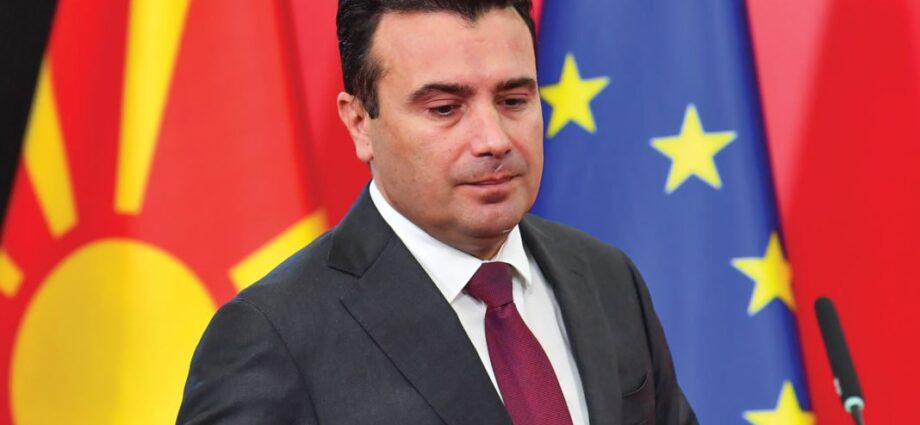Director for Global Economic Affairs at IPEDIS
Published 08:49 October 24, 2019 on NEWEUROPE

Enlargement boosters across Europe were stunned by the third failure of the European Council to announce a decision on 18 October on a date for beginning EU accession negotiations for Albania and North Macedonia, despite protracted negotiations.
While the blame was clearly laid on French President Emmanuel Macron for pressing his point on the need for complete reform of the entire “irreversible” EU Enlargement process, a number of other observers and parties quietly joined Macron in a second line of argumentation, acknowledging that neither Albania nor North Macedonia is ready to begin accession negotiations now.
Despite the spin that most pro-Enlargement and pro-democracy NGOs are freely dispensing, joining the EU is not a “reward” for a bold political step one leader might take while claiming his/her nation’s path is now “European,” in this case the resolution of North Macedonia’s Name Dispute with Greece in 2018, but rather a multi-dimensional and multi-year assessment that a country is undertaking reforms and is capable of meeting new responsibilities and verifiable democratic standards, which in the case of eastern and southern Europe have become rather fuzzy.
See you next spring
In any event, the European Council managed to agree on one thing at this Summit: “The European Council will revert to the issue of enlargement before the EU-Western Balkans summit in Zagreb in May 2020.”
What kind of place Europe will be then is a difficult conjecture if, indeed, Brexit has been completed. In any event, the jostling for influence between Berlin and Paris almost guarantees there will be substantial changes in the process formerly known as EU Enlargement, with the perspectives of most of the EU’s vocal pro-enlargement eastern members almost completely disregarded, as if the plan is to eliminate Eurovision-style bloc voting, which if more underqualified candidate countries entered, would clearly weaken remaining democratic standards within the Union along with strengthening German influence across the EU.
“Et tu, Zoran?”
New Europe readers will not have been surprised that North Macedonia’s Prime Minister Zoran Zaev withdrew from the media spotlight on 18 October and emerged the next day with a declaration of intent to deliver on his long standing threat, at least to Brussels, to call snap elections. After meeting with political leaders over the weekend, the date for snap elections was set for 12 April, six months before they were scheduled and a curiously a month before the Zagreb EU-Western Balkans Summit.
Characterising an electoral schedule shift of this kind as “snap elections” is debatable, and Zaev seemed to have had little difficulty granting his opposition so much time to organize a campaign. Let us not forget how Zaev, availing himself of unorthodox and quite possibly undemocratic practices, managed to win the votes needed from the ultranationalist opposition to pass the controversial constitutional amendments required to implement the Prespes Agreement with Greece in January of this year.
Zaev also had significant foreign support and the pro-Democracy NGOs normally flooding Skopje were almost invisible for this period as Zaev pressed a number of opposition MPs to switch positions, including agreeing to questionable side understandings that ended certain government inquiries into these MPs’ past activities and records.
Meanwhile, Zaev is talking with other EU leaders in a bid to keep the discussion on Enlargement alive in some form. He is planning a trip in late October to meet with Italian Prime Minister Giuseppe Conte, who has hinted he will launch his own initiative on Enlargement.
Albania remains calm
So far, Albania has not moved towards elections. However, the opposition parties did not miss the opportunity to attack Prime Minister Edi Rama for Macron’s actions and the wider fallout. The Summit’s results have energized opposition calls for Rama’s resignation; Democratic Party leader Lulzim Basha went so far as to claim that “Europe rejected Edi Rama, not Albania.”
In September, the opposition’s ongoing anti-Rama protests cooled off somewhat after some became violent and the country took a pause to await the EU’s Enlargement decision. Some observers now worry about fresh instability and a renewed push to remove Rama.
Washington’s consolation prize for Skopje
Even before the election campaign starts, Zaev’s friends in Washington understand his need for visible signs of concern and support from the world’s leading superpower and that means lots of photo ops with senior American officials. Well before the disappointment of the EU Summit, rumours were heard in Skopje that Zaev might be invited to Washington.
Zaev’s top supporter in the US, Acting Assistant Secretary of State for European and Eurasian Affairs Philip Reeker, who was previously the American Ambassador to Skopje, was said to be arranging an event linked to the completion of the US ratification procedure for North Macedonia’s NATO accession, possibly including a White House meeting. With Reeker’s heavy involvement as an intermediary in the widening Trump-Ukraine scandal, this remains to be seen.
The US Senate finally got around to ratifying North Macedonia’s NATO accession October 22, with a 91-2 vote. Two Republican senators voted against the new alliance structure in the bill. Although parliamentary approval is usually routine business in most democratic countries, each NATO member state must ratify an accession document which formally adds a new ally, which is why the actual start of membership for North Macedonia, joining as the alliance’s 30th member, may not happen before a NATO Summit at the end of the year.


